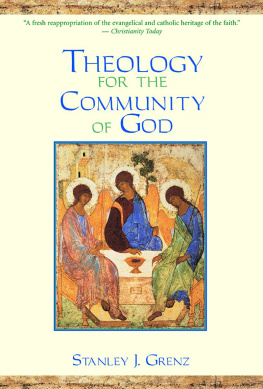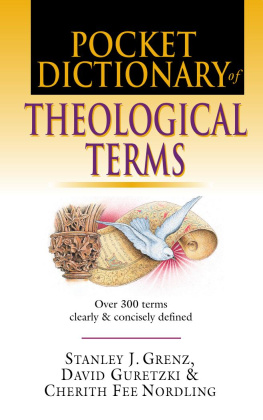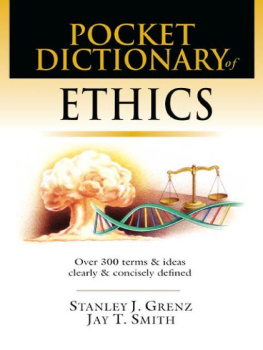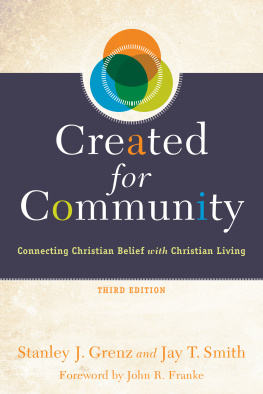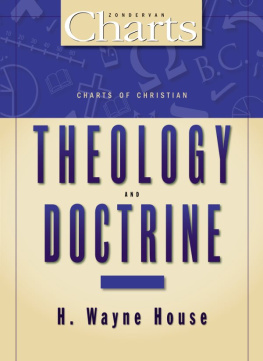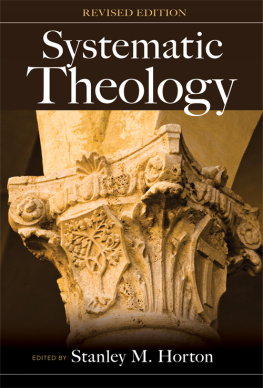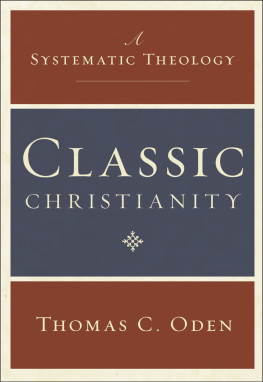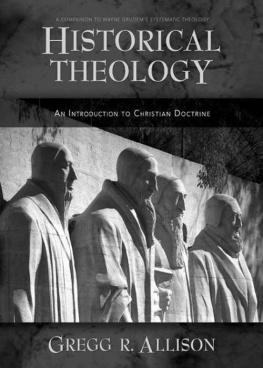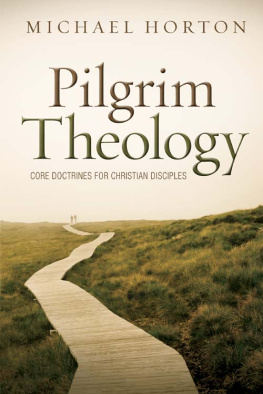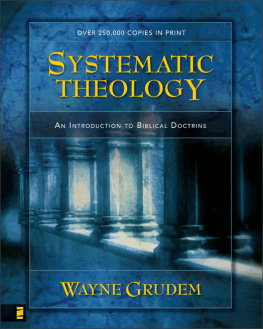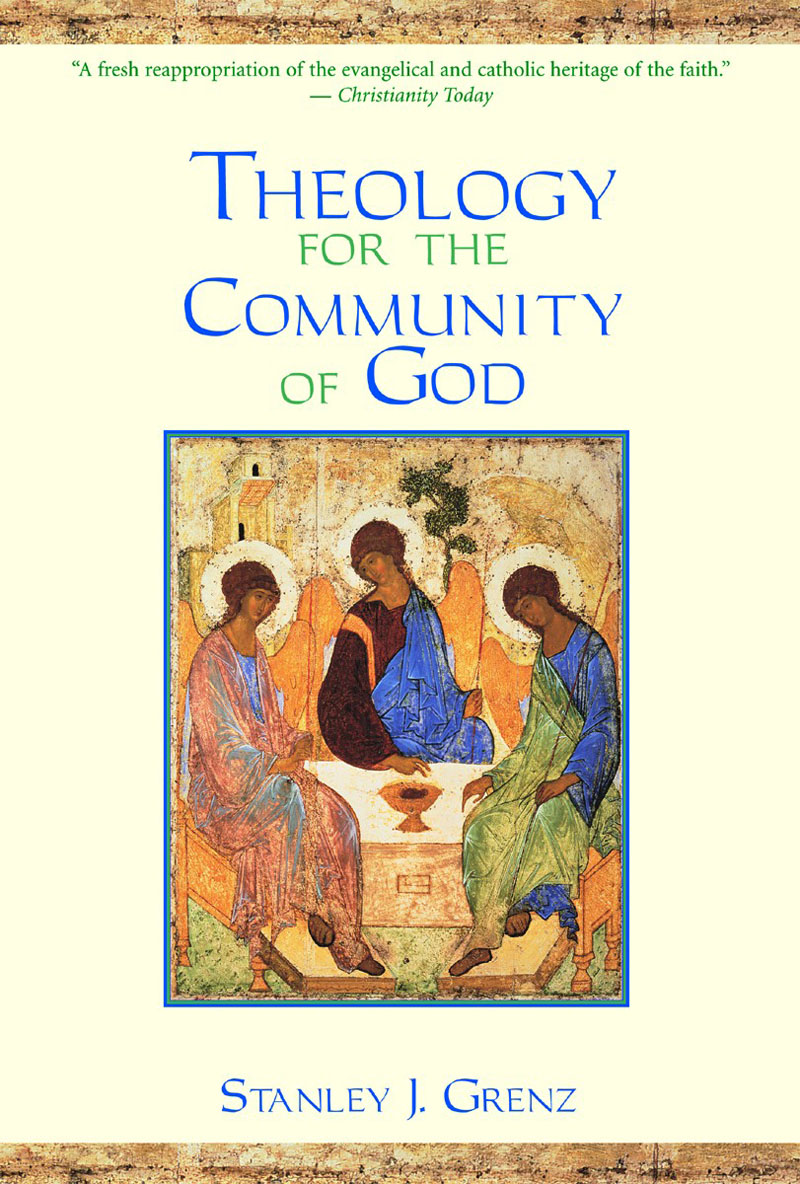
PRAISE FOR
Theology for the Community of God
Theology for the Community of God represents the coming of age of American evangelicalism.
CARL E. BRAATEN
Center for Catholic and Evangelical Theology
This volume should quickly establish itself as a standard textbook for evangelicals. Grenz has masterfully blended biblical, historical, and contemporary concerns, and his emphasis on the Trinity is especially salutary. He addresses all of the major topics of Christian faith in a fresh and insightful manner, producing a book that is a delight to read.
WARREN McWILLIAMS
Oklahoma Baptist University
Grenz is an important new voice in the field of systematic theology.
GABRAIEL FACKRE
Andover Newton Theological School
The writing is clear, the judgments balanced, the command of the Christian tradition and contemporary culture extensive and deep. Its focus on community as an integrating motif is especially crucial for all Christian theology as a healthy corrective to the radical individualism of modernity. Grenz presents overall a beautiful and powerful vision of what it means to be a faith community today.
ELIZABETH JOHNSON, C.S.J.
Fordham University
A solid introductory text in systematic theology that combines deep learning and welcome lucidity.
CLARK PINNOCK
McMaster Divinity School
This work succeeds where other one-volume systematic theologies fail. Its respect for traditional theological loci makes it classroom friendly. In addition, its response to postmodern fragmentation through narrative theology and a thematic stress on community gives it both freshness and contemporary relevance. Grenz has done a wonderful job and has set the standard for a new generation of evangelical scholars.
CRAIG BLAISING
Dallas Theological Seminary
While not everyone will agree with all of the conclusions to which he comes, Grenz always sets out the issues in a highly judicious way, bringing together biblical exegesis, historical theology, and modern doctrine in a masterly fashion.
PAUL FIDDES
Regents Park College, University of Oxford
Grenzs organizing principle of the eschatological community is both biblical and convincing in its stress on ethical conduct as an outgrowth of doctrine. He includes the corporate and the individual, the present and the future, in a way that does justice to the breadth of biblical insight.
WILLIAM L. HENDRICKS
Southern Baptist Theological Seminary
1994 by Broadman & Holman Publishers
This edition published jointly 2000 by
Wm. B. Eerdmans Publishing Co.
255 Jefferson Ave. S.E., Grand Rapids, Michigan 49503 /
P.O. Box 163, Cambridge CB3 9PU U.K.
and by
Regent College Publishing
an imprint of Regent College Bookstore
5800 University Boulevard, Vancouver, B.C. V6T 2E4
All rights reserved
Printed in the United States of America
Library of Congress Cataloging-in-Publication Data
Grenz, Stanley, 1950
Theology for the community of God / Stanley J. Grenz.
p. cm.
Originally published: Nashville : Broadman & Holman, 1994.
Includes bibliographical references and indexes.
ISBN 0-8028-4755-2 (pbk.)
1. Theology, Doctrinal. 2. Evangelicalism. I. Title.
BT75.2.G74 2000
230.04624 dc21 99-088899
Regent College Publishing ISBN 1-57383-160-3
Unless otherwise noted, all Scripture quotations are from the HOLY BIBLE: NEW INTERNATIONAL VERSION. Copyright 1973, 1978, 1984 by the International Bible Society. Used by permission of Zondervan Bible Publishers. Scripture marked RSV is from the Revised Standard Version of the Bible, copyrighted 1946, 1952 1971, 1973 by the Division of Christian Education of the National Council of Churches of Christ in the U.S.A., and used by permission.
To
David S. Dockery
scholar, friend, and kindred spirit
Contents
PART 1
THEOLOGY: THE DOCTRINE OF GOD
PART 2
ANTHROPOLOGY: THE DOCTRINE OF HUMANITY
PART 3
CHRISTOLOGY: THE DOCTRINE OF CHRIST
PART 4
PNEUMATOLOGY: THE DOCTRINE OF THE HOLY SPIRIT
PART 5
ECCLESIOLOGY: THE DOCTRINE OF THE CHURCH
PART 6
ESCHATOLOGY: THE DOCTRINE OF LAST THINGS
Preface
During the last two decades, the church in North America has witnessed a renewed interest in theology. This interest has spawned a litter of new systematic theologies, as thinkers have sought to provide the intellectual resources for the Christian community as it faces the third millennium of its history. Theology for the Community of God arises out of this theological ferment.
Like many similar works, the following pages delineate the central themes of Christian doctrine in a systematic manner. Hence, after an introductory chapter, the discussion moves through the major divisions of systematic theology as it has been traditionally conceived: God (theology proper), humankind (anthropology), Christ (Christology), the Holy Spirit (pneumatology), the church (ecclesiology), and the last things (eschatology).
While sharing the common format, the book differs in certain crucial respects from other systematic theologies. One obvious difference is perspective. Every theology reflects to a certain degree the faith community which nourishes its author. Theology for the Community of God gives evidence to my location within the Baptist denomination and my participation in the broader evangelical trajectory. Consequently, the statement of systematic theology that follows is avowedly evangelical and unabashedly Baptist.
Above all, however, the book differs from recent theologies in the integrative motifcommunityaround which the discussion revolves. Like other statements of theology, the following chapters offer an outline of our Christian faith commitment. But my goal is to consider our faith within the context of Gods central program for creation, namely, the establishment of community. I believe this understanding of the divine purpose offers a fruitful point of departure for theological discussion, because it lies at the heart both of the biblical vision and of the longings of humankind as we move into the emerging postmodern era.
As a result of its perspective and integrative motif, Theology for the Community of God comprises a preliminary sketch of the theology called for in my earlier, more programmatic book, Revisioning Evangelical Theology (Downers Grove, Ill.: InterVarsity, 1993).
The agenda set forth in both books is the product of my own theological odyssey. My spiritual roots lie in the pious heritage of the Baptist parsonage in which I was raised. After experiencing a dramatic call to the gospel ministry, my educational track introduced me to the rationalist approach to theology espoused by my teachers, Gordon Lewis at Denver Seminary and Wolfhart Pannenberg in Munich. Consequently, when I began teaching in the early 1980s my approach strongly reflected the influence of my mentors, and their abiding influence is readily evident in this volume. During my first sabbatical leave (1987-88), I returned to Munich to study more closely the theology of my Doktorvater. The year marked an important milestone in my own thinking, as I discovered anew the importance of the pietist heritage in which I had been spiritually nurtured.
Since 1988, I have been seeking to integrate the rationalistic and pietistic dimensions of the Christian faith. In continuity with the training I received from my mentors, I acknowledge the crucial role of reason in the theological enterprise. At the same time, I am convinced that a personal faith commitment as nurtured in a community of faithpietyis also significant in our attempt to understand and to pursue the constructive theological task. Thus, while theology may be an intellectual search for truth, this search must always be attached to the foundational, identity producing encounter with God in Christ. And it must issue forth in Christian living.
Next page
